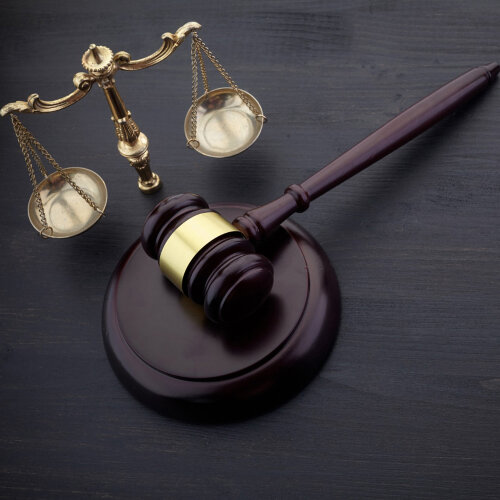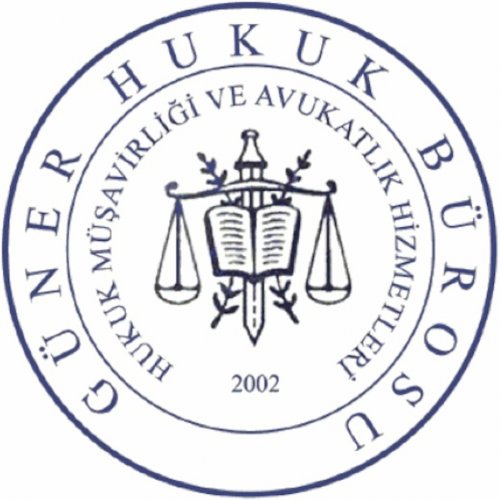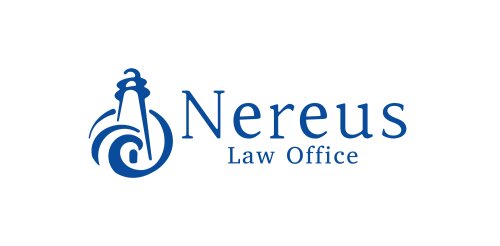Best Mining Law Lawyers in Istanbul
Share your needs with us, get contacted by law firms.
Free. Takes 2 min.
List of the best lawyers in Istanbul, Turkey
About Mining Law in Istanbul, Turkey
Mining Law in Istanbul, and more broadly in Turkey, sets the legal framework for the exploration, extraction, and management of mineral resources. The core regulations are established by the Turkish Mining Law (No. 3213), along with related bylaws and secondary legislation. These rules apply to all mineral activities within Turkish territory, including Istanbul and its surrounding region. Mining Law governs mineral rights, license types, environmental protection responsibilities, financial obligations, and the rights and duties of both private companies and state authorities involved in mining. Due to Istanbul's proximity to key mineral logistics and its economic significance, adherence to Mining Law is especially important for any stakeholders in the sector.
Why You May Need a Lawyer
Navigating Mining Law in Istanbul can be complex. You may need a lawyer for various reasons. Common situations include obtaining mining licenses or permits, negotiating land use agreements, handling ownership disputes, complying with environmental regulations, or facing administrative investigations and penalties. Lawyers are essential in contract negotiation, due diligence during acquisitions, public tenders, and resolving disputes with governmental bodies or local communities. If you are entering joint ventures, seeking foreign investment, or dealing with cross-border transactions related to mining, legal guidance is crucial to ensure compliance and protect your interests.
Local Laws Overview
Mining activities in Istanbul are governed primarily by the Turkish Mining Law No. 3213, which outlines the exploration and exploitation of mines. Here are key aspects of local laws relevant to mining in Istanbul:
- Mining activities require official permits or licenses from the General Directorate of Mining and Petroleum Affairs.
- There are different classes of mining licenses, each with unique requirements and obligations based on the type of mineral and stage of development.
- Environmental Impact Assessment (EIA) approval is often mandatory before commencing operations.
- Land ownership does not grant mineral rights. The state owns all minerals and grants exploitation rights through licenses.
- There are financial commitments such as royalties, permit fees, and other taxes imposed on mining projects.
- Holders of mining licenses must comply with occupational safety, rehabilitation, and environmental standards.
- Companies must adhere to strict local, regional, and national zoning and urban planning regulations, especially within or near Istanbul's municipal boundaries.
- Disputes may be settled through administrative procedures or, in some cases, court litigation involving specialized mining or environmental law judges.
Frequently Asked Questions
What is the process to obtain a mining license in Istanbul?
You must apply to the General Directorate of Mining and Petroleum Affairs. The application includes documentation on exploration plans, environmental impact, and proof of financial capability. The process is highly regulated and involves several administrative steps and approvals.
Do private landowners own the minerals under their property?
No, in Turkey, all mineral resources belong to the state. Landowners may have a say in surface rights but need state approval or compensation arrangements if mining operations impact their land.
Is an Environmental Impact Assessment always required?
Most mining projects, especially large-scale or those near protected areas, require an EIA before activities begin. Some smaller operations may be exempt, but this depends on the project's size and scope.
How long is a typical mining license valid in Istanbul?
License duration varies by the type of mineral and operation stage, ranging from a few years for exploration to up to 60 years for exploitation, subject to renewals and compliance.
What taxes and fees are involved in mining?
These can include licensing fees, annual rent, royalties based on output, and various local taxes. Exact amounts depend on the mineral, volume, and project specifics.
What should I do if I have a dispute with a government authority?
You can first seek to resolve administrative issues through appeals within the relevant ministry. If unresolved, disputes can be brought before Turkish administrative courts or specialized mining law chambers.
Are foreign companies allowed to hold mining licenses?
Yes, foreign investors can obtain mining licenses in Turkey, but must comply with all regulations and may need to establish a local legal entity.
What are the main environmental obligations for mining operations?
Operators must prevent pollution, rehabilitate sites post-operation, maintain safety standards, and comply with both Mining and Environmental Law requirements.
Can mining licenses be transferred or sold?
Transfers are possible under Turkish law, but require prior approval from the relevant authority and compliance with legal criteria.
Is it necessary to engage with local communities before starting a mining project?
While not always legally mandated, engaging local stakeholders is strongly recommended to prevent future disputes and issues, especially where there is significant social or environmental impact.
Additional Resources
If you need further information or assistance regarding Mining Law in Istanbul, the following resources may be useful:
- General Directorate of Mining and Petroleum Affairs (Maden ve Petrol İşleri Genel Müdürlüğü - MAPEG)
- Ministry of Energy and Natural Resources
- Istanbul Bar Association
- Chamber of Mining Engineers of Turkey
- Environmental Impact Assessment Department of the Ministry of Environment, Urbanization and Climate Change
- Local environmental NGOs focused on mining sector monitoring
Next Steps
If you need legal assistance regarding Mining Law in Istanbul, it is advisable to consult with specialized mining or environmental law attorneys who have deep knowledge of local practice and regulations. Begin by preparing details about your project or issue, and gather relevant documents such as title deeds, maps, permits, and correspondence with authorities. Schedule a consultation with a lawyer to discuss your objectives and concerns. Legal professionals can help clarify compliance requirements, guide you through licensing or dispute resolution, and represent your interests before authorities or courts. Remember to verify the experience and credentials of any lawyer or firm before retaining their services.
Lawzana helps you find the best lawyers and law firms in Istanbul through a curated and pre-screened list of qualified legal professionals. Our platform offers rankings and detailed profiles of attorneys and law firms, allowing you to compare based on practice areas, including Mining Law, experience, and client feedback.
Each profile includes a description of the firm's areas of practice, client reviews, team members and partners, year of establishment, spoken languages, office locations, contact information, social media presence, and any published articles or resources. Most firms on our platform speak English and are experienced in both local and international legal matters.
Get a quote from top-rated law firms in Istanbul, Turkey — quickly, securely, and without unnecessary hassle.
Disclaimer:
The information provided on this page is for general informational purposes only and does not constitute legal advice. While we strive to ensure the accuracy and relevance of the content, legal information may change over time, and interpretations of the law can vary. You should always consult with a qualified legal professional for advice specific to your situation.
We disclaim all liability for actions taken or not taken based on the content of this page. If you believe any information is incorrect or outdated, please contact us, and we will review and update it where appropriate.
















